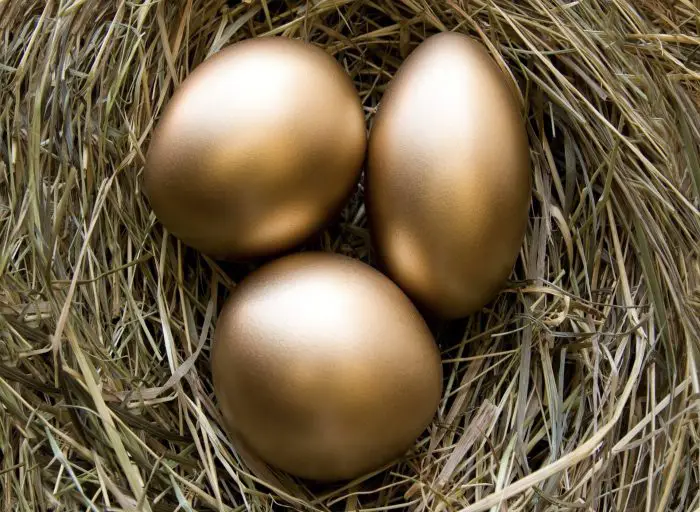Make eggs last longer
Egg memes have been popping up all over the internet, but there’s nothing funny about the skyrocketing costs of eggs in the US. With prices 138% higher since December alone and record profits for top egg companies, there is growing concern that consumers are being price gouged. With such high prices, consumers now need ways to make their eggs last longer.

The situation has become so dire that Americans are asking what’s next – will bananas be affected too? For those who rely on this staple in their households, it’s a very real worry.
With eggs becoming increasingly expensive in 2023, it’s important to find ways to stretch out the eggs you have and make them last as long as possible. Fortunately, there are several simple methods that can help you do just that. Here are some tips on how to make eggs last longer:
Freeze Them: Uncooked eggs can be frozen for up to one year! To freeze them, crack open the eggshells and separate the yolks from whites, then store each in a separate container. Eggs in their shells cannot be frozen unless they have been hard-cooked first, so be sure to boil them thoroughly prior to freezing. Usually, boiling them for 20 minutes or so will get the job done.
Scramble: Scrambling or soft boiling an egg helps increase its shelf life significantly since it cooks the egg and makes it resistant to bacteria growth. Scrambled eggs can be stored in an airtight container for up to four days in the refrigerator.
Pickle: This is the perfect way to make eggs last longer. Hard boiled eggs can be pickled by boiling them with vinegar, sugar, spices, and herbs then storing them in a jar of brine for a few weeks. Doing this will extend their shelf life up to several months!
Minced: If you want your eggs to last even longer than pickling, simply mince them and put them into ice cube trays before freezing. This way they’ll stay fresh for up to six months!
By following these tips, you’ll be able to stretch out your precious supply of eggs significantly while still enjoying all the deliciousness they offer at a fraction of the cost.
Will the FTC investigate?
The Farm Action group has called on the Federal Trade Commission (FTC) to investigate the high prices of eggs in the US, which have soared 138% to $4.25 a dozen over December of last year. They cite record profits from Cal-Maine Foods, who has stated that reduced egg production, due to avian flu, is driving up prices.
The USDA data also indicates that egg inventories are down by 29%, but this may not explain record-high prices. The American Egg Board claims that wholesale egg prices are beginning to fall, and Cal-Maine stock has recently dropped after an almost 50% surge in 2020.

How to Pickle Eggs
Picking eggs is a simple process that requires only a few steps and some basic ingredients. Follow these instructions to pickle eggs successfully:
1. Start by hard boiling the eggs. Place the eggs in a saucepan and cover them with cold water. Bring the water to a boil and let it simmer for about 10 minutes. Once done, drain the water and let the eggs cool.
2. Prepare the pickling solution. In a medium sized bowl, combine 1 cup of white vinegar, 1 tablespoon of salt, 1 teaspoon of sugar, 1 teaspoon of mustard seed, and 1 teaspoon of black peppercorns. Mix well until the sugar and salt are fully dissolved.
3. Place the eggs in the pickling solution. Carefully lower the eggs into the solution and make sure they are fully submerged. Let the eggs sit in the pickle solution for at least 24 hours in the fridge.
4. Enjoy! After 24 hours, the pickled eggs are ready to eat! Serve them with your favorite condiments or in a salad. Enjoy your delicious pickled eggs! what other spices and vegetables and herbs can you put in pickled eggs You can add a variety of spices, vegetables and herbs to pickled eggs to customize the flavor.
For example, you can add garlic, onion, celery seed, bay leaves, dill seed, red pepper flakes, oregano, and thyme to the pickling solution. You can also add vegetables such as carrots, cucumbers, and mushrooms to the pickling jar before adding the eggs.
Experiment with different combinations to find the perfect flavor for your pickled eggs! Can you add apple cider vinegar to pickle eggs? Yes, you can add apple cider vinegar to pickle eggs. Simply replace the white vinegar with apple cider vinegar and follow the same instructions as above. The apple cider vinegar will give the pickled eggs a slightly sweet and tart flavor, making them perfect for pairing with salads or for snacking on.
Pickling eggs is an easy and delicious way to make them last longer. Here’s how to do it:
Ingredients:
6 hard-boiled eggs, peeled
1 cup white vinegar
2 cups water
1 tablespoon sugar
1 teaspoon salt
Your favorite herbs and spices (optional)
Instructions:
Place the eggs in a glass jar or container
Another method of pickling eggs to stretch your budget
In a saucepan over medium heat, combine the vinegar, water, sugar, salt, and herbs/spices (if desired). Bring the mixture to a boil and stir until all ingredients are dissolved.
Pour the boiling liquid over the eggs in the jar, making sure that all of them are covered by at least an inch of liquid.
Let cool for about an hour before covering and refrigerating for up to two weeks. Enjoy!
Herbs, Spices and Vegetables to Use When Pickling Eggs
Pickling eggs is a great way to make them last longer while adding flavor. Here’s a list of herbs, spices, and vegetables that can be used when pickling eggs:
Bay Leaves
Allspice Berries
Cloves
Mustard Seeds
Garlic Cloves
Dill Seeds or Weeds
Hot Peppers
Onion Slices or Pieces
Carrot Slices
Celery Slices
Mushrooms
Leeks
Apple Cider
3 Ways to Crack an Egg Without Getting Shell In the Food
Here are three methods for cracking eggs without getting any of the shell into the food:
Use a Spoon – Use a small spoon to gently tap the egg on its side. This method allows you to crack it just enough for you to be able to separate the eggshell halves with your fingers.
Knock It Against a Bowl – Place the egg on a flat surface and knock it against the edge of a bowl. When you do this, make sure that there is some space between your finger and the edge of the bowl so that if any shell gets in, it will not travel into the food.
Tap It Against a Countertop – Firmly tap one end of the egg against a countertop or other hard surface. This will cause it to crack open, allowing you to separate it easily without getting any shells inside.
How to Separate Eggs
Separating eggs is a simple process that requires some finesse. Here’s how to do it:
1. Crack the egg into two halves, taking care not to break the yolk.
2. Transfer the egg yolk back and forth between both eggshell halves until all of the egg white has been removed. Another way the food channel does it is sifting through your fingers.
3. Gently place the yolk in a separate bowl and repeat with other eggs, if needed.
Adding Eggs to Stretch Meals
Eggs are a great way to stretch meals, as they are inexpensive and loaded with protein. Adding eggs to dishes like meatloaf or casseroles can add more bulk and nutrition while also helping reduce the overall cost. Here are some ideas on how to incorporate eggs into your meals:
Scramble them up and stir them into a vegetable soup for added protein.
Beat an egg in with the ground meat when making burgers or meatloaves. This will help it bind together better, make it taste richer, and will stretch it out so you have more servings.
Use hard-boiled eggs as a topping for salads or sandwiches for a healthy and filling meal.
Add chopped hard-boiled eggs to an omelet or frittata for extra scrumptiousness!
Make a quiche, which is basically an egg-based custard in a pastry shell that can be filled with all kinds of delicious ingredients like cheese, vegetables, and meats. Southern Breakfast Casseroles for a crowd goes a long way.
Hack Your Way to More Scrambled Eggs
If you need to stretch your scrambled eggs or make them go farther, add two tablespoons of water or milk or cream when you’re whisking them together. This will help you stretch the eggs, as well as make them more fluffy and creamy. Just be sure not to add too much liquid or else your eggs will be runny.
Eggs are currently a pricey item, but there are ways to make eggs go further in your budget. If you plan ahead and buy in bulk, you can save money. Additionally, if you use the eggs for recipes that call for them to be used in smaller quantities, you can stretch your egg supply even further. Finally, consider using egg whites or egg substitutes for some recipes to reduce the amount of eggs you are using. With a little bit of planning, you can make your eggs go far.
